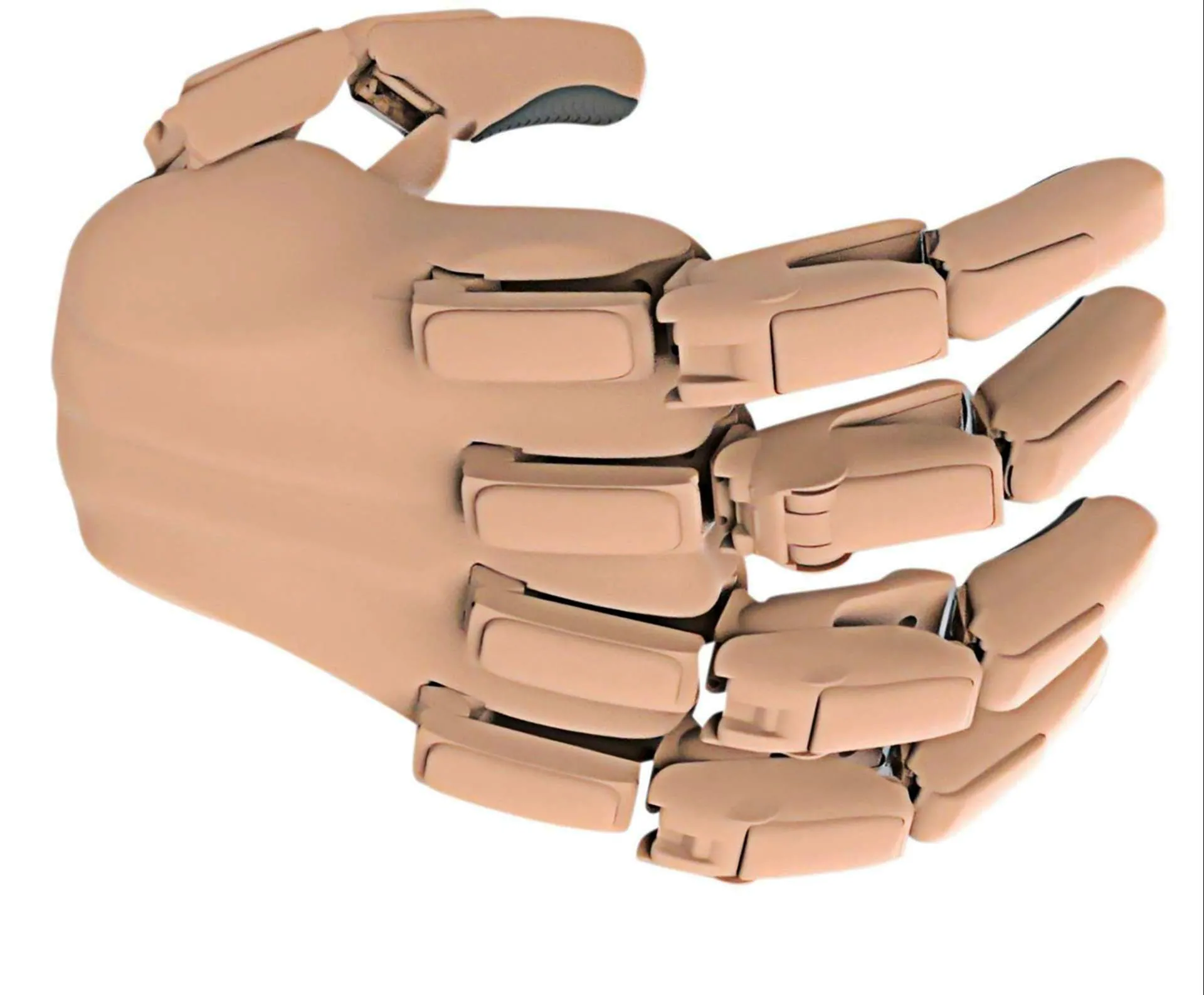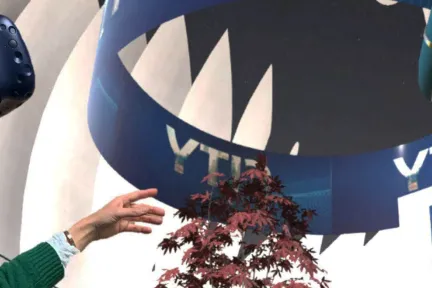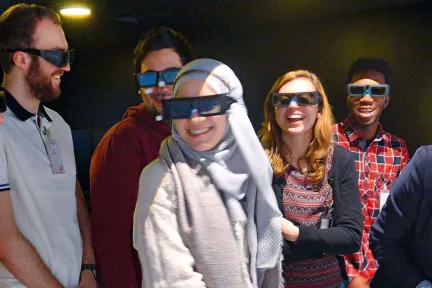The 3DEXPERIENCE for Good hackathon
The aim of the 3DEXPERIENCE for Good hackathon was to design a prosthetic hand to distribute to vast numbers of people around the world.
More than 12 million people around the world have had a forearm amputation. In the last 15 years, the Ellen Meadows Prosthetic Hand Foundation has given away 50,000 LN-4s: low-cost, light, durable and functional prosthetic hands designed using pre-CAD technology.
Thanks to the generosity of its donors, the Ellen Meadows Foundation works with individuals and organizations around the world to find people who would benefit from one of these hands. The Foundation distributes its hands in three ways: through one-off events, partner organizations in individual countries, and responses to individual requests.
With the 3DEXPERIENCE for Good hackathon, Dassault Systèmes joined forces with the Ellen Meadows Foundation to upgrade the LN-4 and reinvent the way prosthetic hands are designed. The aim was to design a new model that would meet certain usage and manufacturability requirements.
Although asked to focus on the technical design, participants were also asked to factor into their design the need to ship more than 1 million of the hands, free of charge, to the most distant corners of the world. The five teams consisted of designers and engineers from various backgrounds, including students, teachers and those working in industry, all recognized in their fields and supported by Dassault Systèmes experts.
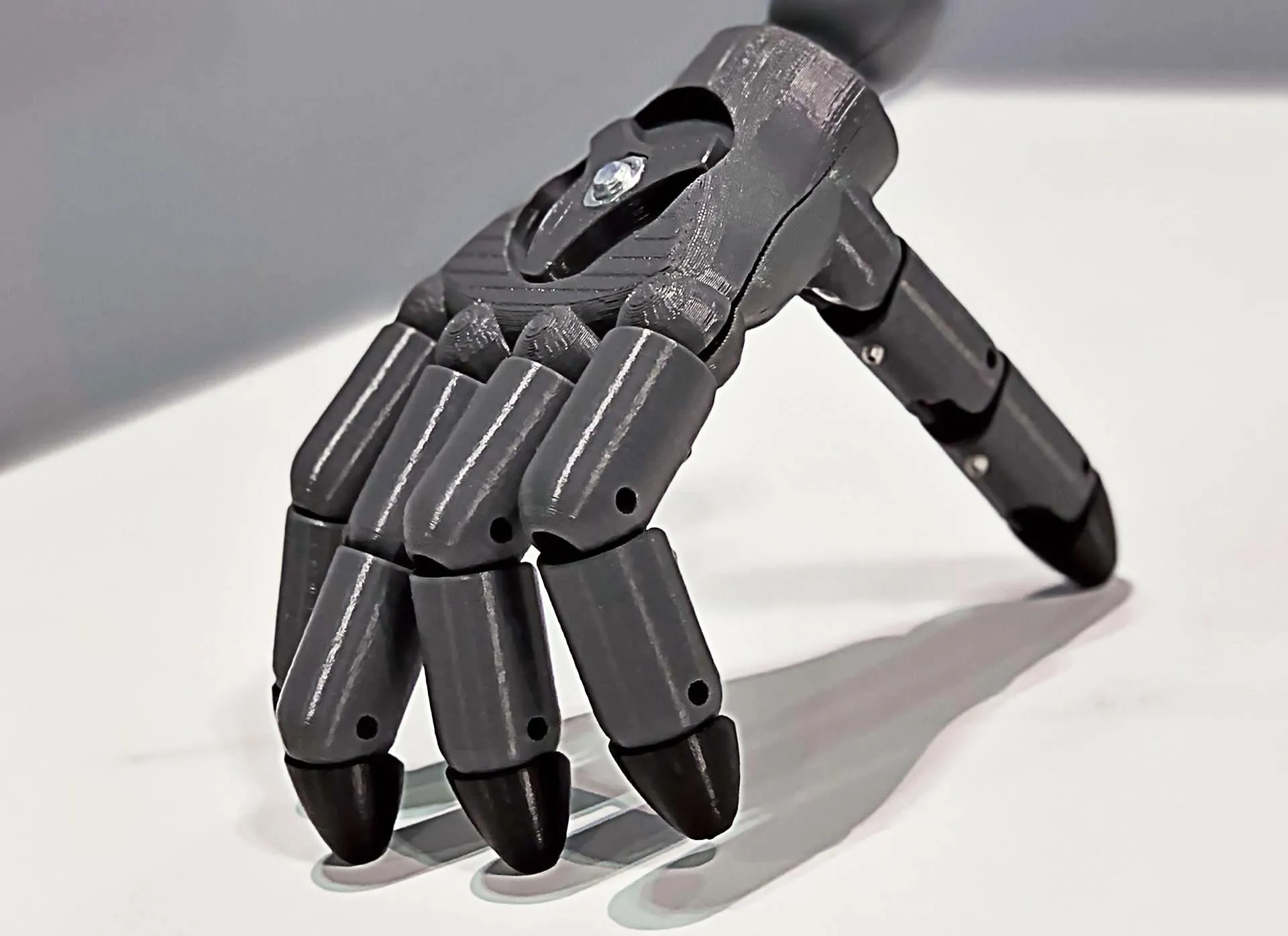
Remote collaboration
Unlike traditional hackathons that take place over a weekend, the five teams of design specialists each spent 120 hours, over the space of a month, bringing their ideas to life. Using their unique skills and talents and a range of leading-edge solutions based on the 3DEXPERIENCE platform, each team’s members collaborated remotely to develop their designs.
The first time they met in person was to present the fruits of their labor, on February 10, 2020 at the 3DEXPERIENCE World 2020 event in Nashville, USA.
FIVE TEAMS, FIVE APPROACHES, ONE GOAL
- Team 1, Prosthetic ARMada, improved on the Ellen Meadows Foundation’s initial hand by enabling it to grasp objects: each finger can lock individually and whole-hand organic modeling makes it look similar to a real hand.
- Team 2, Manbus Postca 2.0, proposed a device fitted to the forearm with mechanical locking to give a more secure grip.
- Team 3, DextR-3, produced the winning design: a functional and simple hand inspired by the original design, but with an opposable thumb and index finger and whole-hand grip. The design is ambidextrous and the hand can be assembled in a left- or right-hand configuration using a simple screwdriver.
- Team 4, Xtreme Team 4 Good, developed a mechanism that is activated by bending the arm. The hand can grip objects but also open doors, and more closely resembles a human hand.
- Team 5, The Five, presented an articulated hand that can perform the main movements of a human hand.
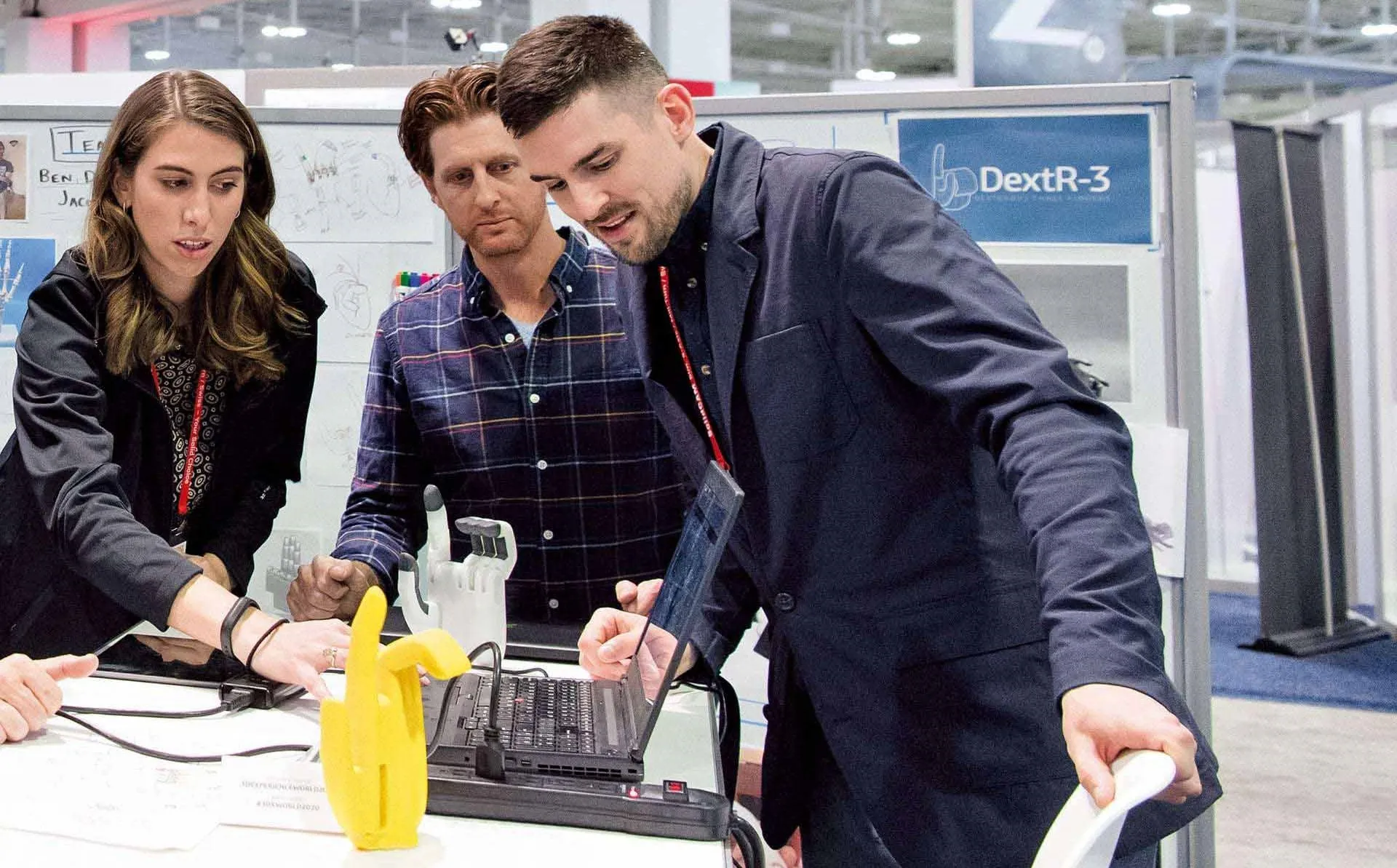
TEMPORARY OR PERMANENT
Depending on the country’s healthcare system, the LN-4 may be a temporary solution while the patient waits for a more sophisticated prosthetic limb. For others, it is the only way for them to regain hand movement.
